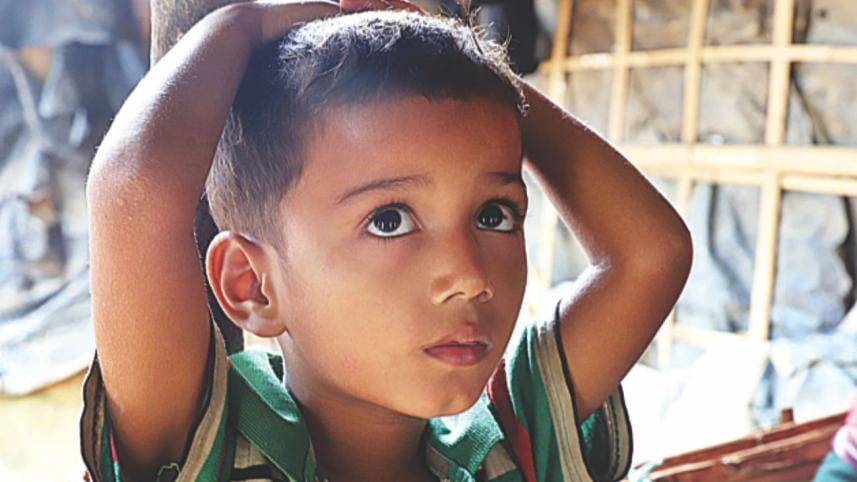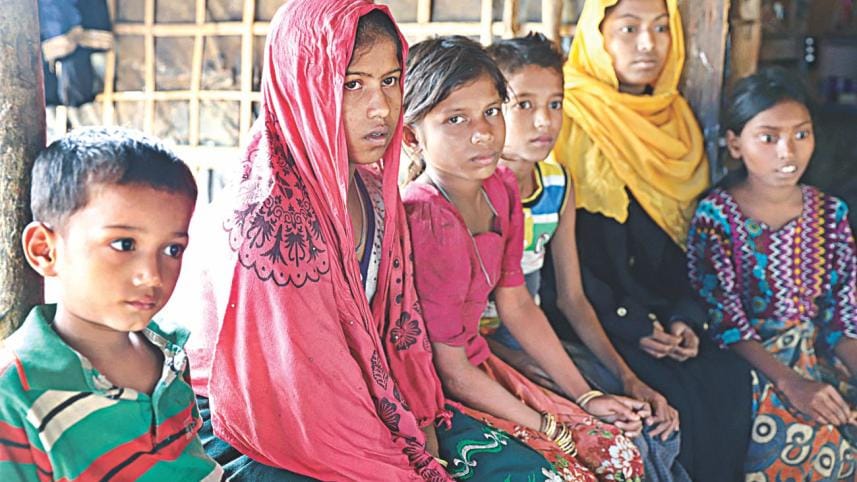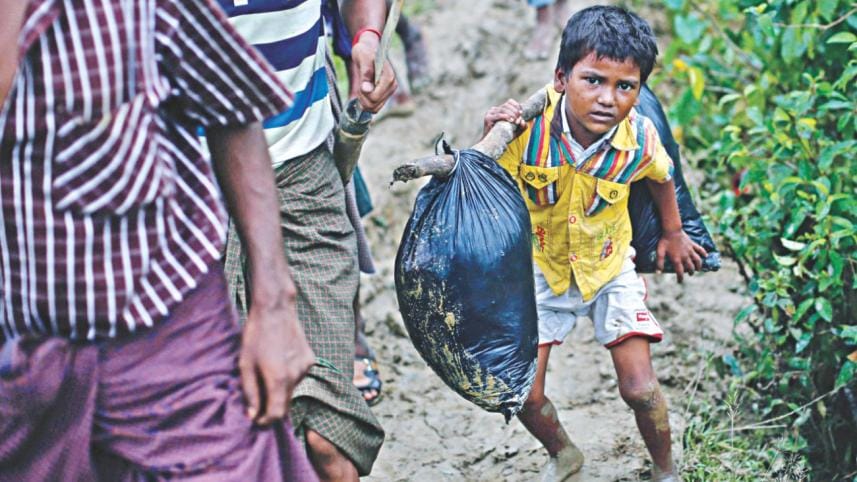Orphaned, in extreme shock

The two sisters can remember quite distinctly how it happened.
Hearing that their village would be attacked, they crouched in a paddy field behind their house. As their hungry toddler brother started crying, the mother attempted to go back to the house with the baby for the food she had cooked a while ago.
But the lynch mob came out of nowhere and instantly started throwing bombs at them. Their father, who had been crouching too, jumped to his feet and darted towards the mother and the baby lying on the ground and he, too, was attacked.

The sisters Shaokat Ara, 14, and Mizanur, 8, trembling with fear behind the sheaves waited till the mob left Mizzali Para, their village in Buthidaung township in Myanmar.
The sisters then started walking and after a three-day trek entered Bangladesh along with some of their neighbours through Rezu Aamtali border in Naikkhyangchhari on August 29. They learnt that their parents and brother were killed from residents of their village, whom they had met on the way.
"We could not take anything along. My mother cooked food but we did not get the chance to eat. The food was probably still warm when my mother was killed," Shaokat Ara told The Daily Star at Kutupalong camp in Ukhia.
Numb with shock, Mizanur has hardly ever spoken since the incident.
Sabekunnahar, another teenager who was sitting beside Shaokat and Mizanur, wept silently as she listened to Shaokat's story.
"I can imagine the same fate befalling my parents. Some of our village neighbours said they were caught and killed," the 13-year-old said.

The girls are among the 1,250 children who were either orphaned or got separated from their families while fleeing Myanmar, according to a recent Unicef release from Geneva. It estimated that nearly two lakh children entered Bangladesh in the last three weeks.
Besides food and shelter, the traumatised children need counselling more than anything else.
Aid agency Save the Children on Sunday expressed fear that the separated or unaccompanied children were in a vulnerable position and at risk of exploitation, abuse and trafficking.
Sabekunnahar and her little sister Daulat are from Fakira Bazar village in Myanmar. They were hiding in a jungle with their family members and neighbours when their village came under siege about a week ago. They cannot precisely remember at which point and how they got separated from others.
"We heard from our neighbours, now in Bangladesh, that my parents, my elder sister and brother were caught by a Burmese mob and killed," Sabekunnahar said.

These four girls from two families had never met each other in their own country. It is their sudden loss that brought them together.
They are now staying with a Rohingya couple Hamid Hossain and Kulsuma Khatun, who came to Bangladesh from Buthidaung in 2012 and has been living in Kutupalong area.
When Hamid heard that people from his village came to Rezu Aamtali border, he went there to look for familiar faces.
A day labourer, Hamid found the four orphan girls near the border and brought them to his makeshift house.
"I have two children but I brought these four as they did not have anywhere to go," Hamid said.
Munni Barua, an aid worker from Codec, which is facilitating child-friendly space for distressed children, said, "We are enlisting children and providing them with toys and other distractions near the camp area to relieve their trauma."
Unicef Communication Officer Faria Salim said they had already taken up programmes to identify and help the traumatised orphans.

 For all latest news, follow The Daily Star's Google News channel.
For all latest news, follow The Daily Star's Google News channel.
Comments